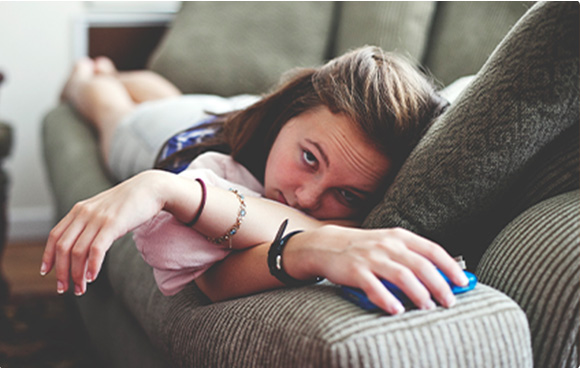Advice we wish we’d had: Supporting a kid or teen with eczema
Get the do’s & don’ts of caring for an eczema
sufferer you love
Growing up isn’t easy. Now, imagine adding eczema (atopic dermatitis) to the equation. Not fun. If you care for one of the roughly 9.6 million U.S. kids or teens with eczema, you probably see firsthand how tough it can be. Want to offer support but not sure how? You’ve come to the right eczema-obsessed team.



Do your best to empathize.
Don’t invalidate their experience.
Although we discourage scratching in order to minimize skin damage, we also recognize it’s far from easy. And it’s much different than the itch and rash you might experience from, say, poison ivy or a bug bite. Try acknowledging how intense—and we mean intense—these symptoms can be.
But physical issues aren’t the only thing to keep in mind. Some children, adolescents, and young adults with eczema report feeling isolated from their peers. It makes sense considering how the disease can restrict their lives. Not to mention, 1 in 4 kids and teens with eczema have experienced bullying. Your child might not always speak up about social problems, so watch for signs.

Do prepare for the long haul.
Don’t tell them they’ll grow out of their eczema.
Eczema isn’t a simple skin condition—it’s a chronic disease of the immune system. Just because certain people grow out of it doesn’t mean everyone will. You can even develop eczema in your teenage years or adulthood. No wonder why Dr. Serrao, dermatologist and eczema sufferer, cautions against giving false hope. “If anything, I edge on the side of saying this may persist. Let’s be prepared to battle this condition lifelong.” Real-life eczema sufferer Sophie has been battling the disease since the day she was born, and she couldn’t agree more. She believes waiting to grow out of it set her back in the end—another reason to focus on the long term. Work with your child’s doctor to find a treatment plan that fits your lifestyle and needs.

Do encourage them to be honest with their doctor.
Don’t overlook the life impact of eczema.
Does your child struggle to catch shuteye at night? We're not surprised—sleep disturbance occurs in about 60% of children with eczema. Unfortunately, sleep troubles are associated with poor performance in school.
Clearly, eczema can affect much more than skin in certain children. Make sure to relay notes like these to your child’s doctor. They’ll want to know how eczema impacts things such as their sleep, productivity, school life, and other activities—in addition to their symptoms and treatment history.
The right details and a more productive conversation can help their doctor better identify treatment plans. That’s why we engineered a tool to help you track your kid's (or your own) eczema experience.
Do remember you’re human, too.
Don’t beat yourself up.
Embarrassed. Frustrated. Helpless. That’s how some parents and caregivers of children with eczema can feel. But that doesn't mean they're failing. It just means they're human.
So, rather than getting down on yourself, consider helping your loved ones:
- Figure out and avoid their triggers
- Track their symptoms and take photos when flaring
- Talk to their doctor and take notes (here’s where our Discussion Guide comes in handy)
- Stick to their treatment and dosing schedule



